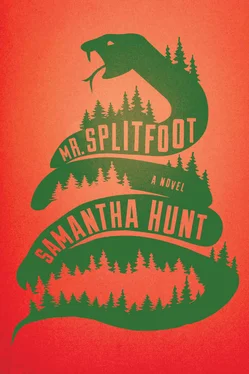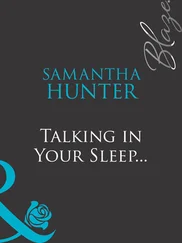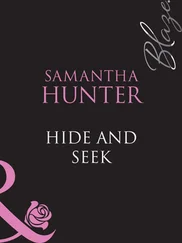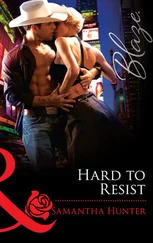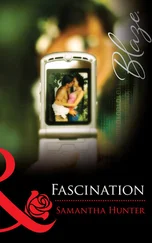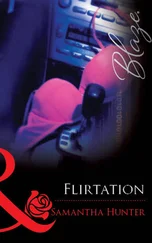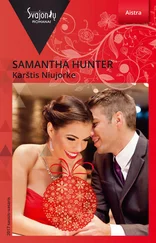“Damn, you sc—”
She shoves a rough hand over my mouth. She tucks her chin, shuts her eyes until I relax. Only then does she remove her hand, shaking her head no, no. And she listens. She points outside.
I listen too. An ad on the TV claims, “Grandma would be proud.”
Ruth sits back on the toilet lid, wrapping her elbows around her middle.
“What?” I mouth. “The man?” But she turns her eyes into sharp death. We sit in silence listening hard.
It takes an hour for the water to lose every bit of its heat. We still don’t move. I have pruned up in unimaginable places, my ankles, my knees. My rear end is turning into cement. I don’t know what she imagines outside our door. There’s one small frosted window in the room. Through it, the sun dies. Still Ruth doesn’t move. We sit in the dark. The water’s freezing. My bones ache, and hours — I think hours — pass this way. I’m shivering. I’m dissolving. The evening news gives way to a crime drama in the bedroom. I rest my head on a bathmat on the edge of the tub. I pee in the water. Eventually I fall asleep, and when I wake, it sounds like one of the late shows.
Ruth is gone.
My knees have little interest in holding me up. I’m wobbly. I turn on the hot shower full blast to burn away the cold.
Ruth isn’t in the bedroom either. I dress, pull on my socks and sneakers, then climb into the far bed, pulling the covers up and over my head.
I wake twice in the night to pee. It’s dark. Still no Ruth. It gets so quiet, I can hear the trickle of water outside, the canal.
A person just entering this situation, a person who hasn’t been on the road for weeks, would call the police or at least call El. But I’m not just entering this situation. Calling the police to find Ruth is like using a bulldozer to needlepoint.
When the sun rises, there’s still no Ruth, and I’m not sure what to do. Some eggs, I guess. A cup of coffee. There’s a diner a short hike from the motel. There’s a squished squirrel on the shoulder, its furry tail lifts with the wind of every passing car. Maybe this is the end. Maybe we’ve arrived wherever it is we’re heading. I don’t know though. This doesn’t feel like the end.
My place mat is a state map marking presidential birth sites, national monuments, the state flower. Rose. Bluebird. Before my eggs arrive, I fold the map and tuck it into my pocket in case I’m alone now. At least I’ll be able to find my way to Martin Van Buren’s house.
Back in the room, I lie stiffly on the bed, a pillow between my legs. I don’t know how to get where we’re heading. I don’t know how to get back to where we came from. I don’t know why or if there’s danger. I lie on the motel bed, a pregnant nothing, having no idea what is going to happen to me.
Before I was pregnant, I thought carrying a baby meant knowing a baby. That’s not true. I don’t know anything about this child. Pregnancy is a locked door in my stomach, all the weight of life and death and still no way to know it. The baby gives me a small kick, taking what’s delicate — lung tissue, tiny see-through fingers, hair fine enough to spin webs — and hardens it into a tough thing, a thing that likes it rough. It’ll grow and I will be the only one who remembers when it was unmarked and delicate as a moth.
Ruth left her bag behind, pinning me here. What if she came back and I was gone? Do I take the bag or leave it? What if something happened to her, if she’s hurt, fallen into a hole? What about bad guys? The bad guy? Then I realize that it’s not just me following Ruth blindly. She needs me. She can’t talk.
The TV feels like heart cancer and homesickness. I switch it off. I poke through Ruth’s things. I find her hairbrush and use it to brush out the knots the road has given me. When I’m done, hair combed, I pull out that Book of Ether.
16 The universe is revealed by science.
The universe or nothing.
The universe is rich in mystery.
No shit.
Someone knocks at the door. I’m still for a moment, but loneliness overrides fear. I open the lock.
The young woman from reception is there. She’s small. Her dark hair is loose and curly, parts have been streaked blue. She wears a tight swath of muslin around her hips and, underneath that, layers and layers of burlap like a down-and-out pioneer. She wears red pantyhose, and she’s painted a line across the bridge of her nose joining together the eyeliner on either side. She’s chronologically messed up, some sort of time traveler. She’s only as high as my chin. Her motorcycle boots appear to be hand-me-downs from an older brother. “You’ve got a phone call.” She flicks her hairstyle in the direction of the office.
The motor lodge is L-shaped with an office at the far end. The canal runs along the backside of the motel, though nowadays the canal’s so still, running isn’t the right word. The office awning is scaffolded by spider webs. There’s no neon or kitsch, none of the good stuff one looks for in old motels. It more closely resembles a publicly funded housing unit. Plain, sturdy, and functional. Its plainness explains the extraordinary efforts the young woman has gone through to look different.
A bell tied to the office door handle rings as the girl throws it open. I follow her in. Five old desk phones, each with a heavy handset, are lined up on a low shelf. That’s four more phones than a motel this broken down requires. One phone rests off the hook. I lift the receiver. “Ruth?” No damn answer. Of course. “Ruth. Quit it. Tell me where you are.”
And then the person on the other line does make a sound. He clears his throat. He.
“Hello?” I try, quietly. The young woman tilts her head.
“You’re mine?” he asks.
“What?”
“You’re mine.” And the line goes dead.
The woman licks and seals an envelope; her tongue makes a timid point.
I’m so scared, I start to lie. “You’re breaking up,” I say into the dial tone. “I’m sorry,” I pretend, too unnerved to admit I’d been careless, that I might have put us in more danger. “I can’t hear you,” I say, replacing the handset and taking a shaky seat on an outdoor bench that’s been moved inside. “I lost whoever it was,” I tell the girl. “Maybe they’ll call back.” I can’t return to the room by myself. I’m too scared. You’re mine? Maybe Lord found me. It didn’t sound like Lord. Plus Lord would never call me his.
I sit with a magazine, and the words there — some new theory for building safer tunnels — crumble. I don’t want to understand Ruth’s life. There might be a really good reason she doesn’t talk.
A small transistor radio is up on a high shelf above the woman, set to a station that’s not seen much change in stock or personnel since 1943. “Midnight blue was the color of her eyes, the sorrow of her sighs.”
I bite one thumb. It’s hard to stop walking once you start because stopping gives the bad things a chance to catch up.
The woman checks her makeup and hair. She taps the eraser of her pencil. “So,” she says. My feet swing just above the ground. “Will you be staying another night?”
“What’s the name of this town again? Byron? Scriba?”
Dead boredom lifts from the woman’s face. She perks up. “St. Eugene. After Gene Boniface, not a saint at all. During the Civil War, he sold parcels of land that never existed. This land was gold then, back in the glory days of the canal. Can you imagine? The canal cut transportation costs by ninety, ninety-five percent. Anything was possible. You want to move that there? Fine. I want to move these things over here. No problem. Transportation is human. Transportation is life, and Gene was a master con man back when it was easier to work a con, back when nobody knew anything. Information was polite. No newscasters’ colonoscopies. No satellite images of the North Pole melting. Anything was possible. Know what I mean? Gene swindled soldiers, sold fake land to men who thought they’d be dead soon. It’s so easy to roll the fearful. Right? Piece of cake. After Gene, this place became a sort of haven for con men.”
Читать дальше
